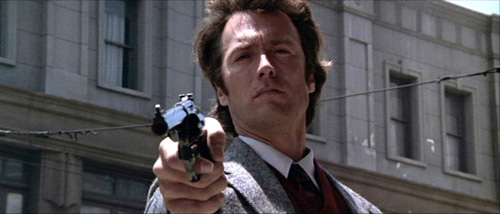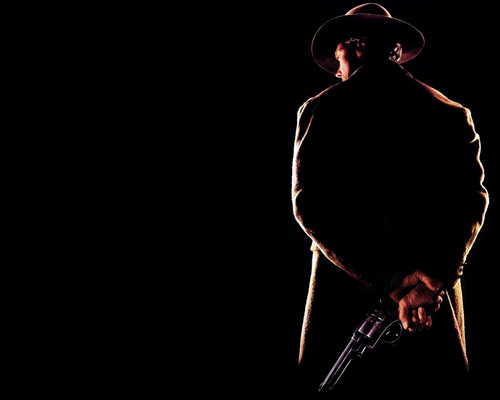The Essential American Soul Is…
Friday, October 20, 2006
posted by Steve Tompkins
 Print This Post
Print This Post

Manohla Dargis, formerly of the Los Angeles Times and now of the New York Times, can be an irritating film critic. But today, writing about Clint Eastwood’s Flags of Our Fathers, she gets one as right as it is possible to get:
One view of Mr. Eastwood is that he has mellowed with age, or at least begun to take serious measure of the violence that has been an animating force in many of his films. In truth, the critical establishment caught up with the director, who for decades has been building a fascinating body of work that considers annihilating violence as a condition of the American character, not an aberration.
Annihilating violence as a condition of the American character; Dargis is of course paraphrasing D.H. Lawrence’s most famous epigram from Studies in Classic American Literature, the one that begins “The essential American soul…” Eastwood’s career has been an enactment of that Lawrentian insight ever since No Name rode into the bordertown of San Miguel on his mule, and Iwo Jima, the subject of Flags of Our Fathers and the inspiration, along with the even ghastlier charnelhouse Okinawa, for so much of postwar science fiction’s “bug hunt” iconography, is an appropriate coda, or near-coda, to that career.

So why am I going on about this at the TC blog? Easily answered. Although his Million Dollar Baby outraged medvedites and other would-be commissars and inquisitors conspicuous for their hair-trigger eagerness to be offended, Clint Eastwood, with Unforgiven and A Perfect World and Mystic River and now Flags of Our Fathers, has achieved a shades-of-gray eminence that rivals his earlier Magnum/”Make my day” superstardom, developing into an Old Master who has been “inside violence” in much the same way as J.R.R. Tolkien is said to have been “inside language.” Another Old Master, the writer Cormac McCarthy, has returned to mapping equally dark and bloody ground in his late novels No Country for Old Men and now The Road (in the ashen aftermath of nuclear war, with bloodcults and cannibals sacrificing or devouring luckless survivors by the light of inextinguishable balefires, a father and son struggle to remain both alive and human). Consider Dargis’ words one more time–annihilating violence as a condition of the American character. This will come as a thudding non-revelation to anyone who has read several of the best essays in the the 2004 critical anthology The Barbaric Triumph, but Robert E. Howard, the Howard of “The Dark Man” and “The Vultures of Wahpeton” and “Red Nails” and “The Man on the Ground,” is almost ludicrously teachable and pantheon-ready in this context.
